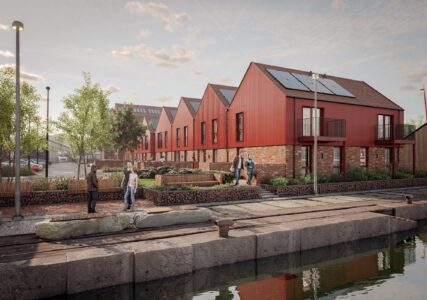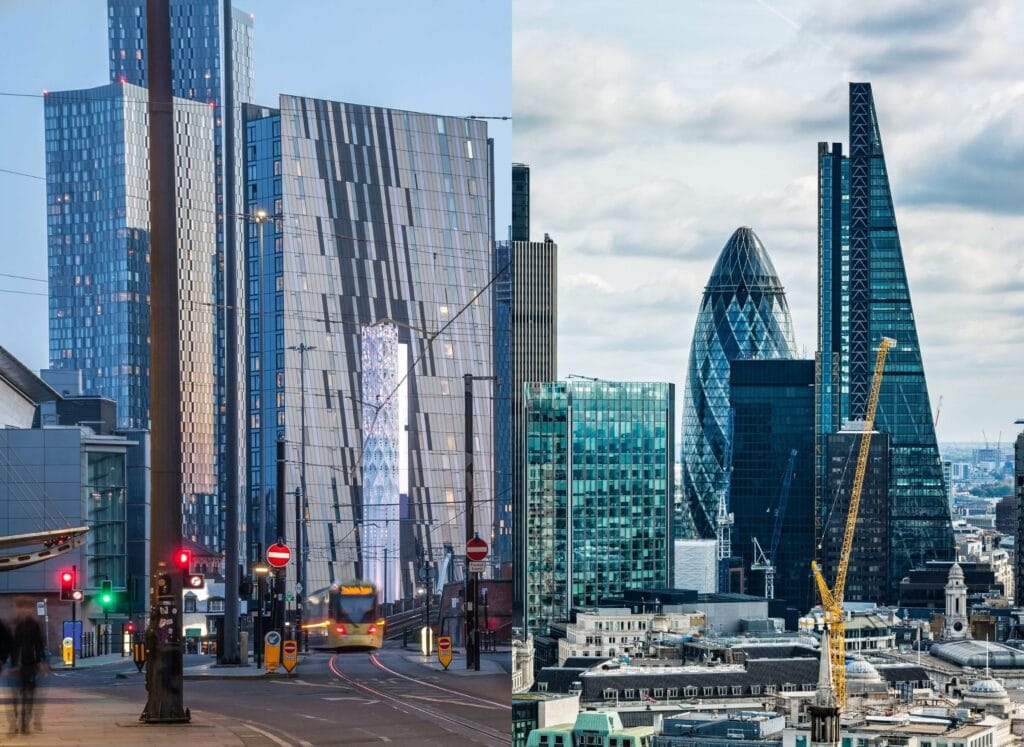Manchester is setting the stage for a transformative decade with the unveiling of a new economic strategy aimed at bolstering its property markets and driving sustainable growth across the city. TK Property Group is confident that this ambitious plan, crafted to address both current challenges and future opportunities, positions Manchester as a leading example of how strategic economic planning can rejuvenate urban landscapes and create resilient, thriving communities.
Strategic Pillars of Growth
The strategy hinges on several key pillars designed to stimulate economic development and attract investment, with significant implications for the property market:
- Innovation and Technology: By fostering a vibrant ecosystem for tech startups and innovation hubs, Manchester aims to attract cutting-edge businesses and skilled professionals. This focus on high-growth industries is expected to increase demand for both commercial and residential properties, as companies seek office spaces and employees look for housing.
- Infrastructure and Connectivity: Investments in transportation and digital infrastructure will enhance Manchester’s connectivity, making it an even more attractive location for businesses and residents. Improved transport links are anticipated to boost property values, particularly in areas adjacent to new or upgraded facilities.
- Sustainability and Green Spaces: Committing to sustainability, Manchester plans to integrate green spaces and environmentally friendly designs into new developments. This emphasis on green living is likely to appeal to a growing segment of the population, increasing demand for properties that align with these values.
- Cultural and Community Investments: By enhancing cultural venues and community spaces, Manchester seeks to enrich its cultural landscape and strengthen community ties. These enhancements can make neighbourhoods more desirable, potentially leading to an uptick in residential property values and attracting a diverse range of tenants and buyers.
Economic Resilience and Diversification
Manchester’s economic strategy also aims to build resilience and diversify its economic base, making the city less susceptible to global economic fluctuations. This approach is expected to create a stable environment for property investment, offering steady growth prospects and mitigating risks associated with market volatility.
Implications for the Property Market
The implementation of Manchester’s economic strategy is poised to have a multifaceted impact on Manchester’s property market:
- Commercial Property Demand: As businesses in the technology and innovation sectors grow, demand for modern, flexible office spaces will rise. This presents opportunities for developers and investors to refurbish existing properties or develop new office complexes, particularly those offering advanced technological capabilities.
- Residential Market Expansion: The influx of professionals and the emphasis on sustainable, community-focused living are likely to spur demand for housing. This creates opportunities for the development of new residential projects, including affordable housing, luxury apartments, and green living spaces.
- Retail and Leisure Enhancements: With economic growth and community investments, there’s potential for revitalisation of the retail and leisure sectors. Properties in these sectors may see increased demand, offering opportunities for redevelopment and new ventures.
Challenges and Considerations
While Manchester’s economic strategy presents numerous opportunities, it also comes with challenges. Ensuring affordability and accessibility in the housing market, balancing development with sustainability, and achieving the desired economic diversification will require careful planning and collaboration among stakeholders.
Manchester’s decade of ambition, underpinned by its new economic strategy, holds promising prospects for the property market. By addressing key areas such as innovation, infrastructure, sustainability, and community investment, the city is not only poised for economic growth but also for a significant transformation of its urban landscape. For investors, developers, and residents, these changes signal a period of dynamic evolution, with Manchester leading the way in demonstrating the power of strategic economic planning to create vibrant, resilient cities.









